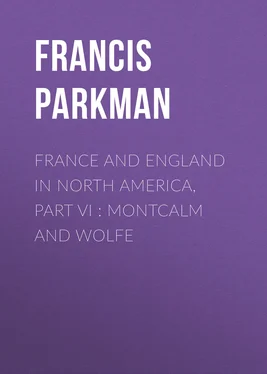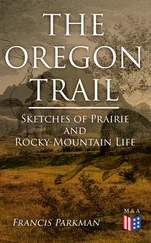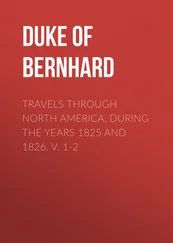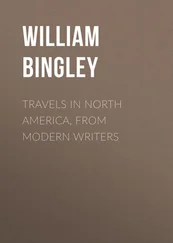Francis Parkman - France and England in North America, Part VI - Montcalm and Wolfe
Здесь есть возможность читать онлайн «Francis Parkman - France and England in North America, Part VI - Montcalm and Wolfe» — ознакомительный отрывок электронной книги совершенно бесплатно, а после прочтения отрывка купить полную версию. В некоторых случаях можно слушать аудио, скачать через торрент в формате fb2 и присутствует краткое содержание. Жанр: foreign_prose, История, foreign_edu, foreign_antique, на английском языке. Описание произведения, (предисловие) а так же отзывы посетителей доступны на портале библиотеки ЛибКат.
- Название:France and England in North America, Part VI : Montcalm and Wolfe
- Автор:
- Жанр:
- Год:неизвестен
- ISBN:нет данных
- Рейтинг книги:5 / 5. Голосов: 1
-
Избранное:Добавить в избранное
- Отзывы:
-
Ваша оценка:
- 100
- 1
- 2
- 3
- 4
- 5
France and England in North America, Part VI : Montcalm and Wolfe: краткое содержание, описание и аннотация
Предлагаем к чтению аннотацию, описание, краткое содержание или предисловие (зависит от того, что написал сам автор книги «France and England in North America, Part VI : Montcalm and Wolfe»). Если вы не нашли необходимую информацию о книге — напишите в комментариях, мы постараемся отыскать её.
France and England in North America, Part VI : Montcalm and Wolfe — читать онлайн ознакомительный отрывок
Ниже представлен текст книги, разбитый по страницам. Система сохранения места последней прочитанной страницы, позволяет с удобством читать онлайн бесплатно книгу «France and England in North America, Part VI : Montcalm and Wolfe», без необходимости каждый раз заново искать на чём Вы остановились. Поставьте закладку, и сможете в любой момент перейти на страницу, на которой закончили чтение.
Интервал:
Закладка:
I have shown elsewhere the aspects of Canada, where a rigid scion of the old European tree was set to grow in the wilderness. The military Governor, holding his miniature Court on the rock of Quebec; the feudal proprietors, whose domains lined the shores of the St. Lawrence; the peasant; the roving bushranger; the half-tamed savage, with crucifix and scalping-knife; priests; friars; nuns; and soldiers,—mingled to form a society the most picturesque on the continent. What distinguished it from the France that produced it was a total absence of revolt against the laws of its being,—an absolute conservatism, an unquestioning acceptance of Church and King. The Canadian, ignorant of everything but what the priest saw fit to teach him, had never heard of Voltaire; and if he had known him, would have thought him a devil. He had, it is true, a spirit of insubordination born of the freedom of the forest; but if his instincts rebelled, his mind and soul were passively submissive. The unchecked control of a hierarchy robbed him of the independence of intellect and character, without which, under the conditions of modern life, a people must resign itself to a position of inferiority. Yet Canada had a vigor of her own. It was not in spiritual deference only that she differed from the country of her birth. Whatever she had caught of its corruptions, she had caught nothing of its effeminacy. The mass of her people lived in a rude poverty,—not abject, like the peasant of old France, nor ground down by the tax-gatherer; while those of the higher ranks—all more or less engaged in pursuits of war or adventure, and inured to rough journeyings and forest exposures—were rugged as their climate. Even the French regular troops, sent out to defend the colony, caught its hardy spirit, and set an example of stubborn fighting which their comrades at home did not always emulate.
Canada lay ensconced behind rocks and forests. All along her southern boundaries, between her and her English foes, lay a broad tract of wilderness, shaggy with primeval woods. Innumerable streams gurgled beneath their shadows; innumerable lakes gleamed in the fiery sunsets; innumerable mountains bared their rocky foreheads to the wind. These wastes were ranged by her savage allies, Micmacs, Etechémins, Abenakis, Caughnawagas; and no enemy could steal upon her unawares. Through the midst of them stretched Lake Champlain, pointing straight to the heart of the British settlements,—a watery thoroughfare of mutual attack, and the only approach by which, without a long détour by wilderness or sea, a hostile army could come within striking distance of the colony. The French advanced post of Fort Frederic, called Crown Point by the English, barred the narrows of the lake, which thence spread northward to the portals of Canada guarded by Fort St. Jean. Southwestward, some fourteen hundred miles as a bird flies, and twice as far by the practicable routes of travel, was Louisiana, the second of the two heads of New France; while between lay the realms of solitude where the Mississippi rolled its sullen tide, and the Ohio wound its belt of silver through the verdant woodlands.
To whom belonged this world of prairies and forests? France claimed it by right of discovery and occupation. It was her explorers who, after De Soto, first set foot on it. The question of right, it is true, mattered little; for, right or wrong, neither claimant would yield her pretensions so long as she had strength to uphold them; yet one point is worth a moment's notice. The French had established an excellent system in the distribution of their American lands. Whoever received a grant from the Crown was required to improve it, and this within reasonable time. If he did not, the land ceased to be his, and was given to another more able or industrious. An international extension of her own principle would have destroyed the pretensions of France to all the countries of the West. She had called them hers for three fourths of a century, and they were still a howling waste, yielding nothing to civilization but beaver-skins, with here and there a fort, trading-post, or mission, and three or four puny hamlets by the Mississippi and the Detroit. We have seen how she might have made for herself an indisputable title, and peopled the solitudes with a host to maintain it. She would not; others were at hand who both would and could; and the late claimant, disinherited and forlorn, would soon be left to count the cost of her bigotry.
The thirteen British colonies were alike, insomuch as they all had representative governments, and a basis of English law. But the differences among them were great. Some were purely English; others were made up of various races, though the Anglo-Saxon was always predominant. Some had one prevailing religious creed; others had many creeds. Some had charters, and some had not. In most cases the governor was appointed by the Crown; in Pennsylvania and Maryland he was appointed by a feudal proprietor, and in Connecticut and Rhode Island he was chosen by the people. The differences of disposition and character were still greater than those of form.
The four northern colonies, known collectively as New England, were an exception to the general rule of diversity. The smallest, Rhode Island, had features all its own; but the rest were substantially one in nature and origin. The principal among them, Massachusetts, may serve as the type of all. It was a mosaic of little village republics, firmly cemented together, and formed into a single body politic through representatives sent to the "General Court" at Boston. Its government, originally theocratic, now tended to democracy, ballasted as yet by strong traditions of respect for established worth and ability, as well as by the influence of certain families prominent in affairs for generations. Yet there were no distinct class-lines, and popular power, like popular education, was widely diffused. Practically Massachusetts was almost independent of the mother-country. Its people were purely English, of sound yeoman stock, with an abundant leaven drawn from the best of the Puritan gentry; but their original character had been somewhat modified by changed conditions of life. A harsh and exacting creed, with its stiff formalism and its prohibition of wholesome recreation; excess in the pursuit of gain,—the only resource left to energies robbed of their natural play; the struggle for existence on a hard and barren soil; and the isolation of a narrow village life,—joined to produce, in the meaner sort, qualities which were unpleasant, and sometimes repulsive. Puritanism was not an unmixed blessing. Its view of human nature was dark, and its attitude towards it one of repression. It strove to crush out not only what is evil, but much that is innocent and salutary. Human nature so treated will take its revenge, and for every vice that it loses find another instead. Nevertheless, while New England Puritanism bore its peculiar crop of faults, it produced also many good and sound fruits. An uncommon vigor, joined to the hardy virtues of a masculine race, marked the New England type. The sinews, it is true, were hardened at the expense of blood and flesh,—and this literally as well as figuratively; but the staple of character was a sturdy conscientiousness, an undespairing courage, patriotism, public spirit, sagacity, and a strong good sense. A great change, both for better and for worse, has since come over it, due largely to reaction against the unnatural rigors of the past. That mixture, which is now too common, of cool emotions with excitable brains, was then rarely seen. The New England colonies abounded in high examples of public and private virtue, though not always under the most prepossessing forms. They were conspicuous, moreover, for intellectual activity, and were by no means without intellectual eminence. Massachusetts had produced at least two men whose fame had crossed the sea,—Edwards, who out of the grim theology of Calvin mounted to sublime heights of mystical speculation; and Franklin, famous already by his discoveries in electricity. On the other hand, there were few genuine New Englanders who, however personally modest, could divest themselves of the notion that they belonged to a people in an especial manner the object of divine approval; and this self-righteousness, along with certain other traits, failed to commend the Puritan colonies to the favor of their fellows. Then, as now, New England was best known to her neighbors by her worst side.
Читать дальшеИнтервал:
Закладка:
Похожие книги на «France and England in North America, Part VI : Montcalm and Wolfe»
Представляем Вашему вниманию похожие книги на «France and England in North America, Part VI : Montcalm and Wolfe» списком для выбора. Мы отобрали схожую по названию и смыслу литературу в надежде предоставить читателям больше вариантов отыскать новые, интересные, ещё непрочитанные произведения.
Обсуждение, отзывы о книге «France and England in North America, Part VI : Montcalm and Wolfe» и просто собственные мнения читателей. Оставьте ваши комментарии, напишите, что Вы думаете о произведении, его смысле или главных героях. Укажите что конкретно понравилось, а что нет, и почему Вы так считаете.












